Détails
Lieu d'édition
Rio de Janeiro
Auteur
Jean-Paul Sartre - [Simone De Beauvoir] - Fernando Sabino
Éditeurs
Editôra do autor
Thème
Histoire sociale|Éditions originales
Description
Editôra do autor | Rio de Janeiro 1960 | 14 x 20.50 cm | broché | Editôra do autor | Rio de Janeiro 1960 14 x 20,5 cm | in original wrappers The rare first edition, only published in Portuguese of this important political text by Jean-Paul Sartre, written in Cuba in 1960. The text was not published in France except in the form of articles in France-Soir, before first appearing in its complete form in 2008 in the journal Les Temps Modernes. Both a reportage on Castro and a fierce critique of American policy during Batista's dictatorial rule, this essay on the Cuban revolution is preceded by an unpublished preface by Sartre and followed by articles by the Brazilian thinkers Fernando Sabino and Rubem Braga. Autograph inscription signed by Jean-Paul Sartre to Georges Raillard, with the signature of Simone de Beauvoir above. Spine skilfully restored, one small repair to lower margin of title. It was at the invitation of Carlos Franqui, then editor of the Revolucion newspaper, that Sartre and de Beauvoir traveled to Cuba from February to March 1960. Fourteen months after the revolution, these two thinkers accompanied Castro on a tour of the island. Out of this voyage and their numerous encounters along the way – notably including Che Guevara – came this long, politically heavily engaged, reportage, entitled Ouragan sur le sucre [Storm over the Sugar Cane], later divided into a series of sixteen articles published in France-Soir from 28 June to 15 July 1960 with the idea of raising awareness of the recent Cuban revolution among the broader public, following the fall of Fulgencio Batista. In 2008, almost half a century later, the review Les Temps Modernes finally published, in a single issue, this stinging essay by Sartre, adding the author's unpublished contemporary notes written at the time with a view to a French edition. This never saw the light of day, no doubt because at the same time in France there was another popular fight for liberty that occupied the philosopher's attention: Algerian Independence. Incidentally, it was with the intention of joining these two struggles that Sartre and Beauvoir accepted, in September 1960, an invitation to the Congrès des Critiques in Recife, Brazil. They touched only briefly on Brazilian literature, using this trip as a pulpit for bringing together the Algerian War and the Cuban Revolution, as de Beauvoir notes in La Force des Choses II [Force of Circumstance, vol. II]. Very quickly, the visit to Brazil by these two key figures of the French intellectual left took on a highly politicized bent and in press conferences, Sartre focused on the Cuban Revolution as a response to the situation in Algeria, since “the most important phenomenon of the century is the liberation of the colonized peoples.” Affirming that Latin America and Brazil in particular were to play an essential role in countering the politics of great power blocks, in favor of this new form of Communism founded on the quest for peace and not power, Sartre galvanized a number of intellectuals. Among them was the noted future literary and art critic Georges Raillard, then a young professor at the University of Rio, and his wife Alice – a translator – who decided, together with some of the major figures of the Brazilian intelligentsia to leave a mark of this historic visit by Sartre who, by his constant conflation of the situation in Cuba and in Algeria seemed to carry a message of hope for a universal Revolution. Bringing together a number of great writers, like Jorge Amado, a close friend of the Raillards, and Fernando Sabino and Rubem Braga, this group of young intellectuals decided to publish a previously entirely unpublished work by Sartre for the South American continent before the latter's return to France. In a matter of weeks, a Brazilian publisher managed this impressive feat and soon this Storm over Cuba (Furacão Sôbre Cuba) created another in the French bookshop in São Paulo, which saw “the most chaotic book sig
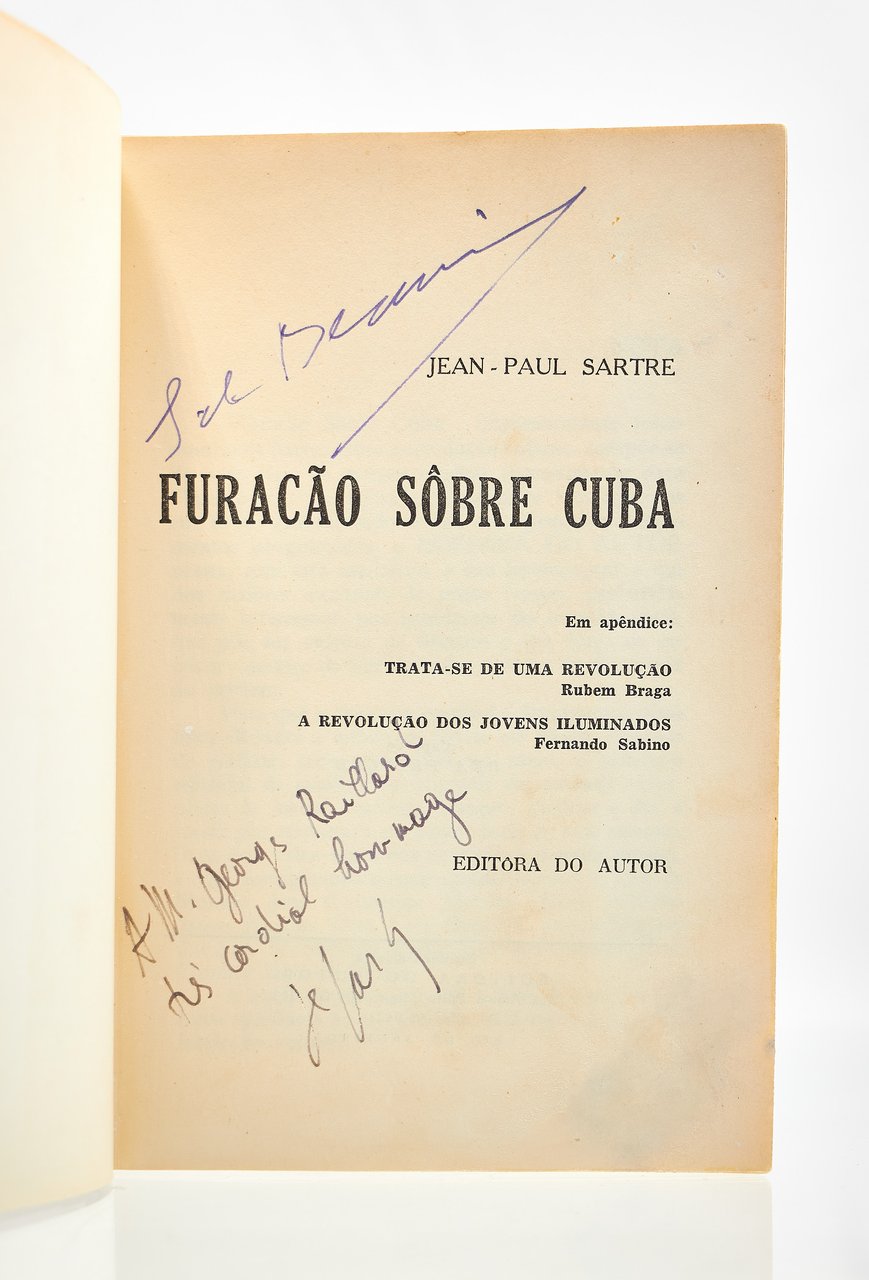
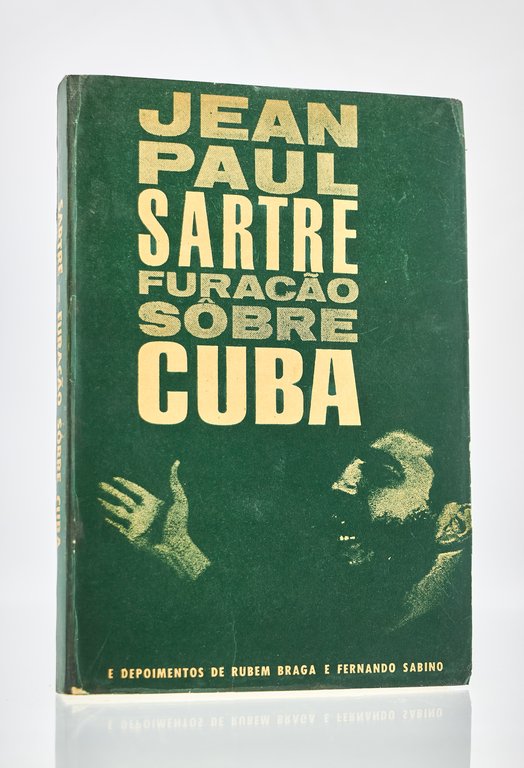
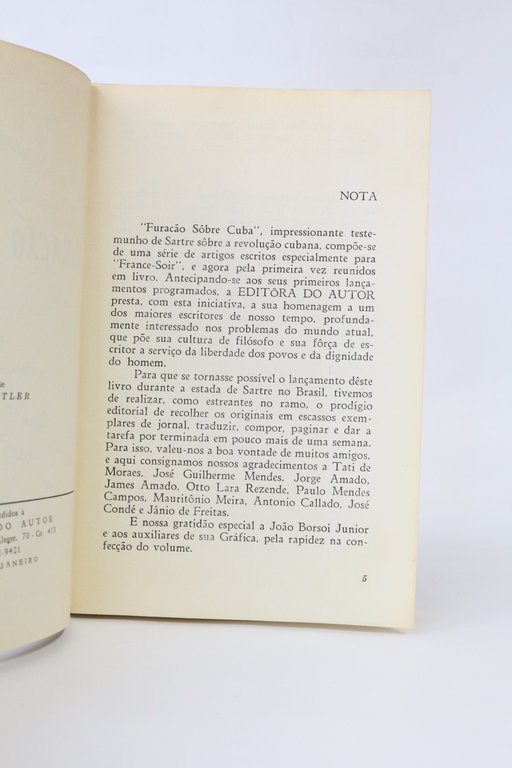
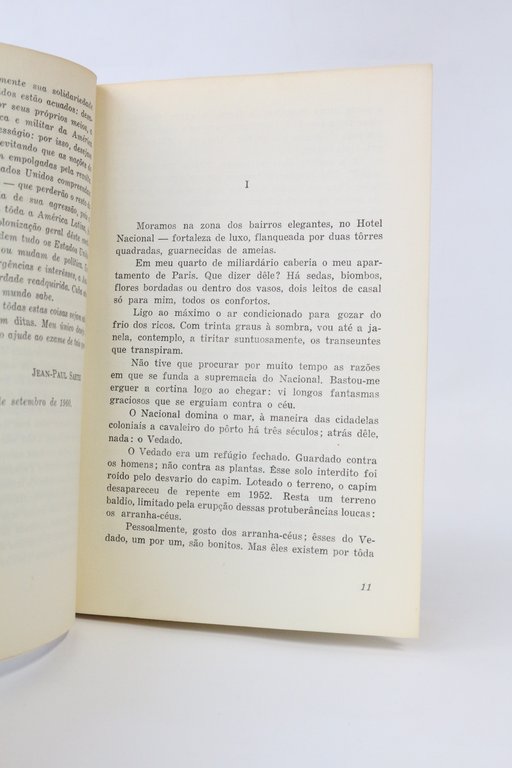
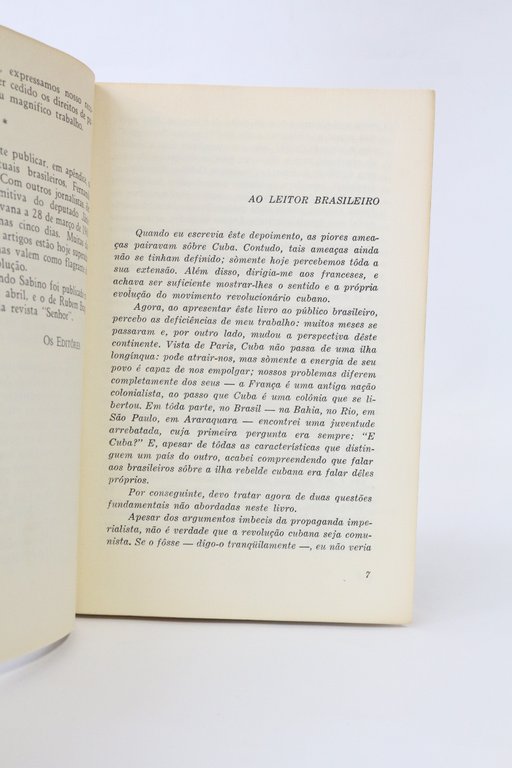
Découvrez comment utiliser
Découvrez comment utiliser

